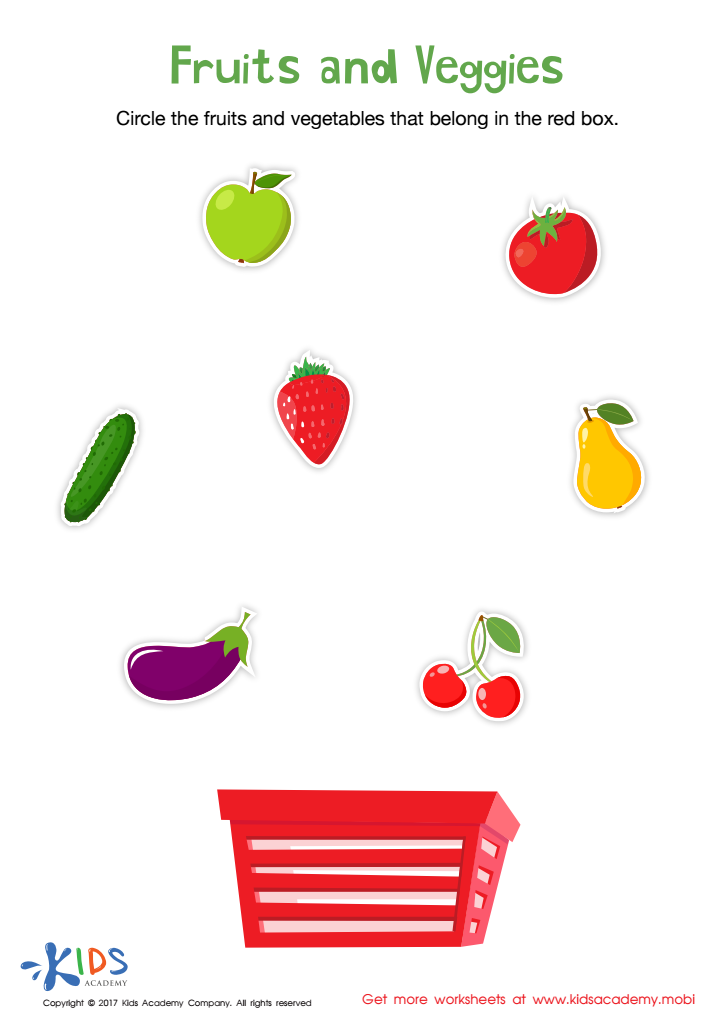Sorting skills Worksheets for Ages 6-7
14 filtered results
-
From - To
Enhance your child's sorting skills with our engaging worksheets designed for ages 6-7! These specially crafted activities encourage young learners to develop critical thinking as they categorize and differentiate objects by various attributes such as color, shape, and size. Our interactive worksheets promote cognitive development, enhance organizational skills, and make learning fun. With colorful designs and varied exercises, your child will enjoy sorting through fun themes while fostering essential early math skills. Perfect for homeschooling, classroom use, or supplementary practice, our sorting skills worksheets are an essential tool for your child's educational journey. Explore their potential today!
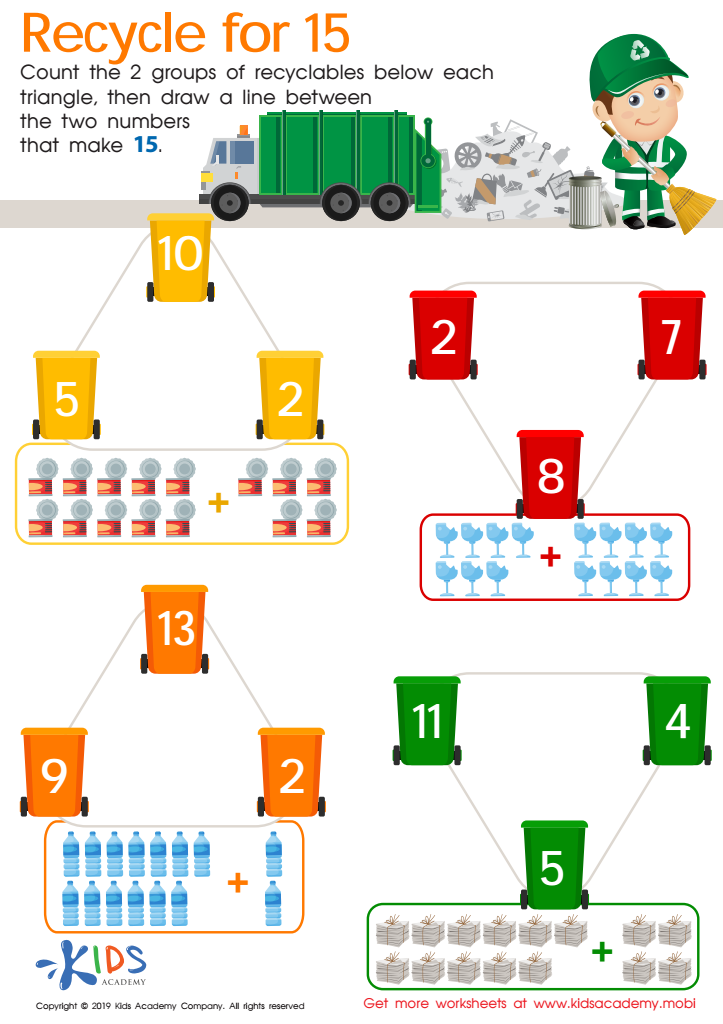

Recycle for 15 Worksheet
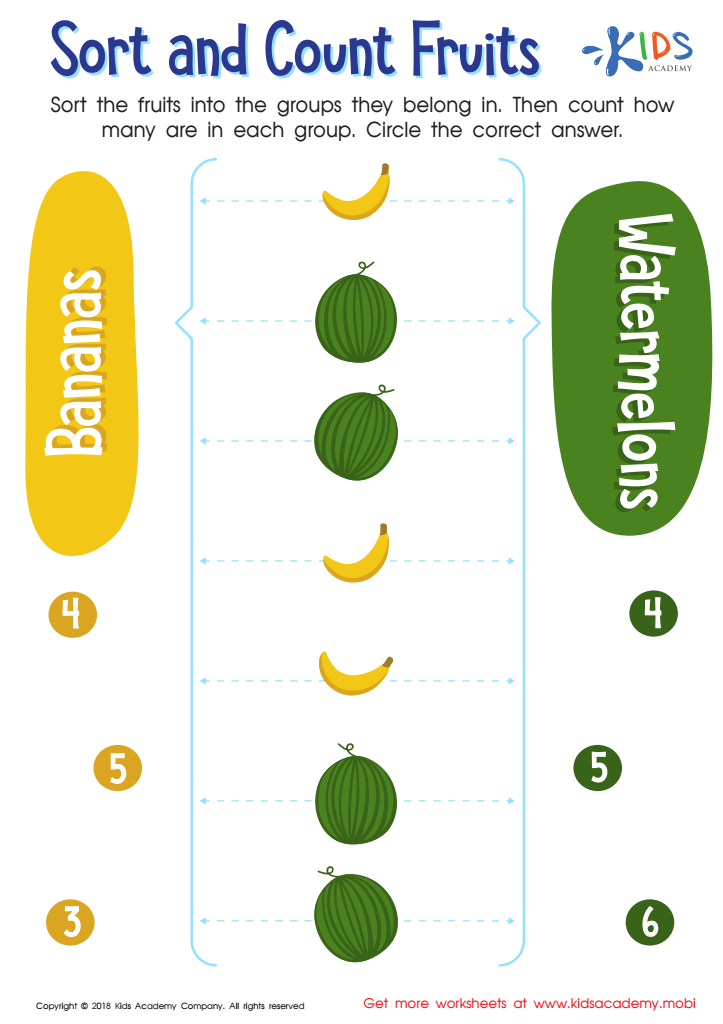

Sort and Count Fruits Worksheet


Sort and Count to the Moon Worksheet
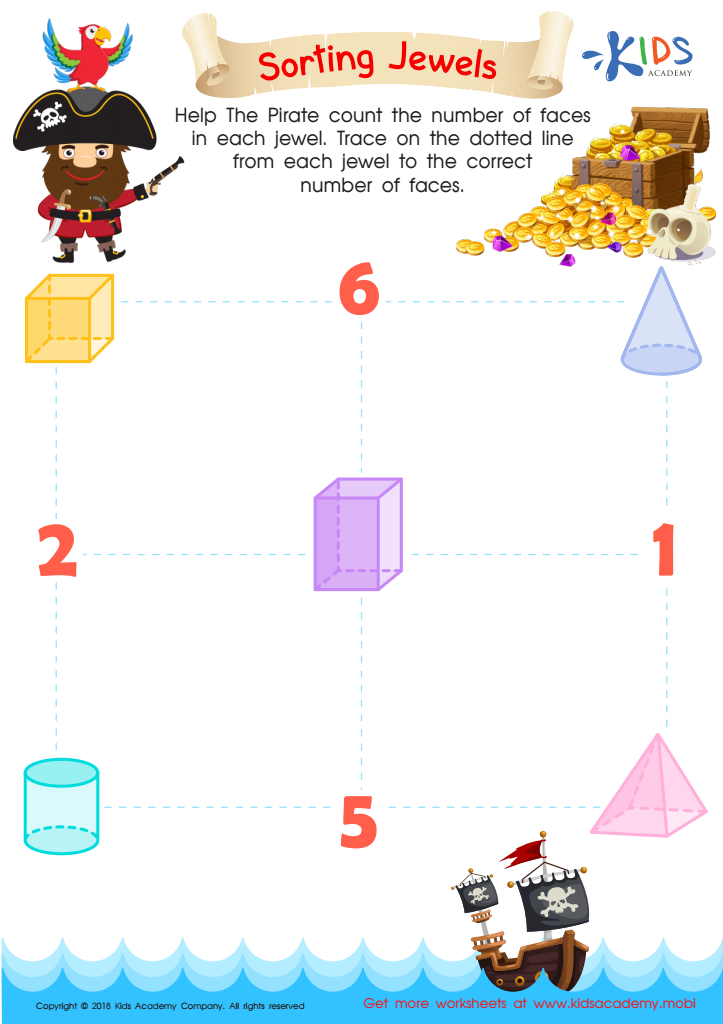

Sorting Jewels Worksheet
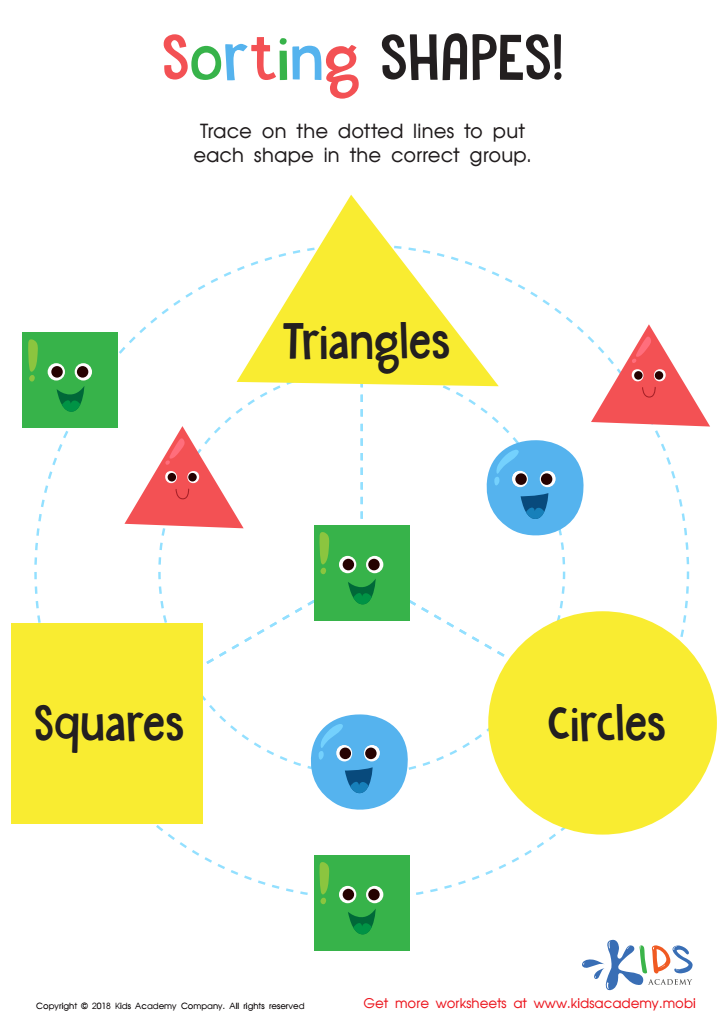

Sorting Shapes - Part 3 Worksheet
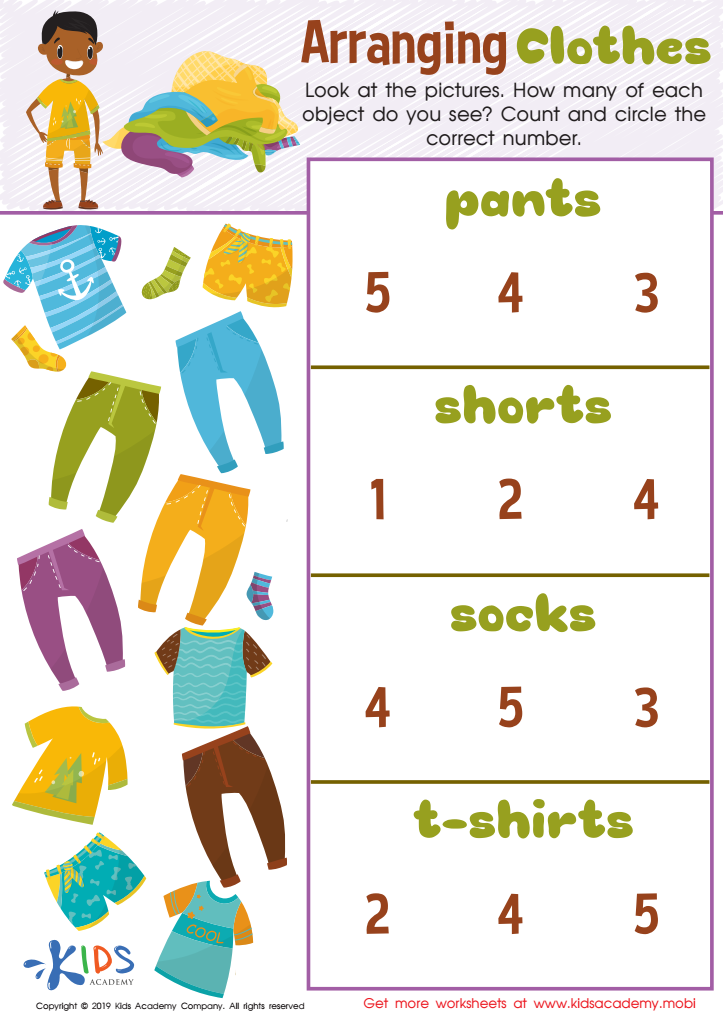

Arranging Clothes Worksheet
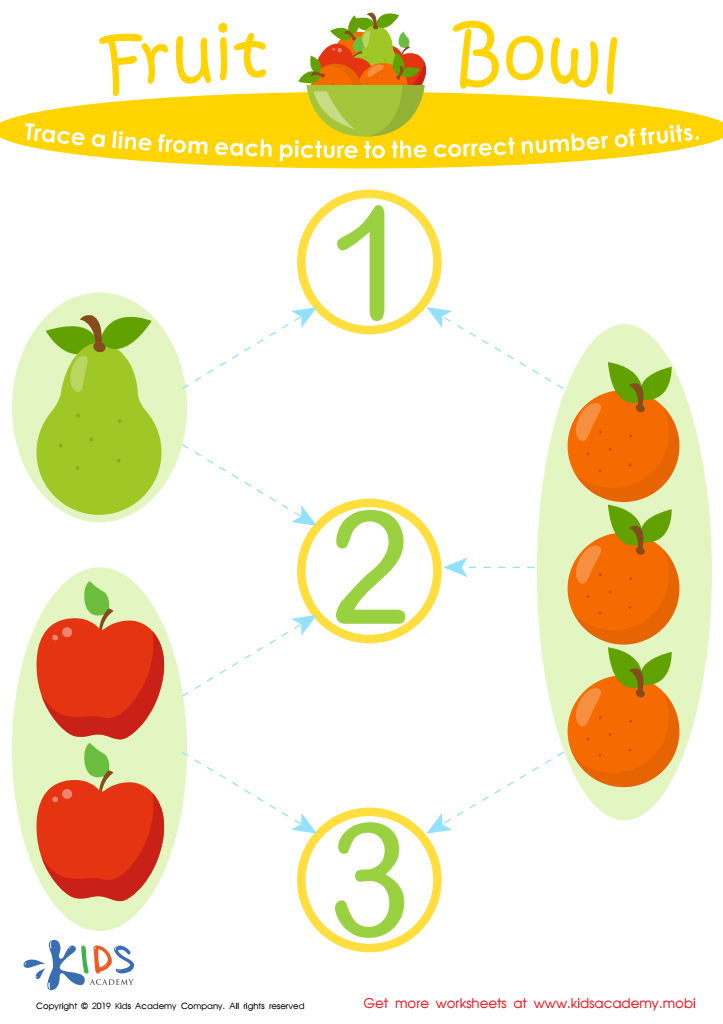

Fruit Bowl Worksheet
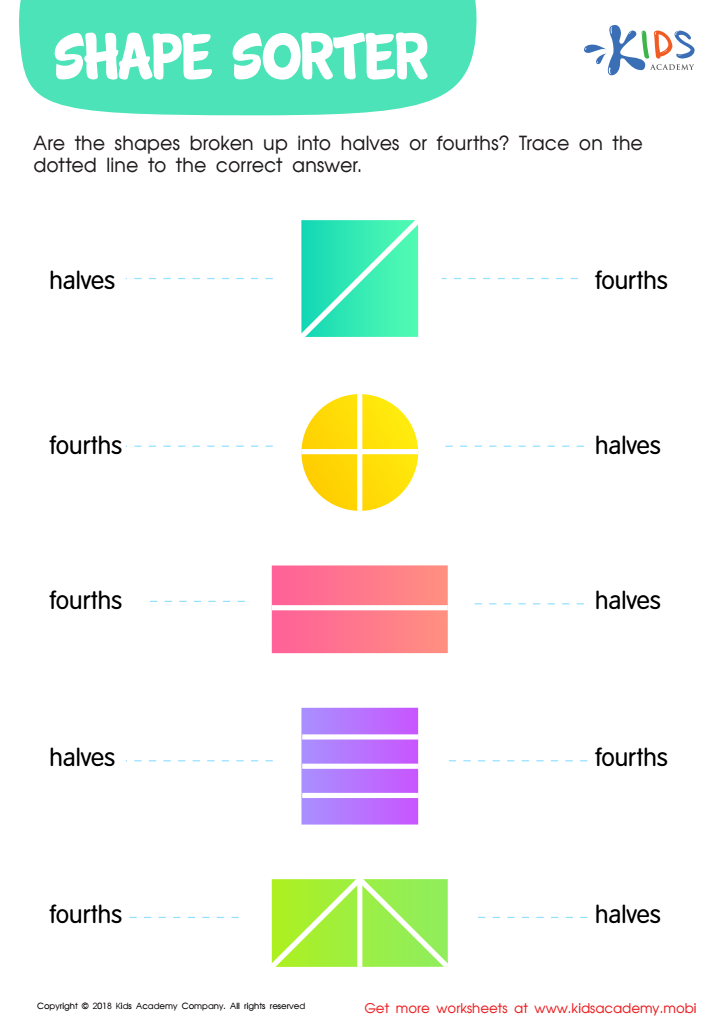

Shape Sorter Worksheet
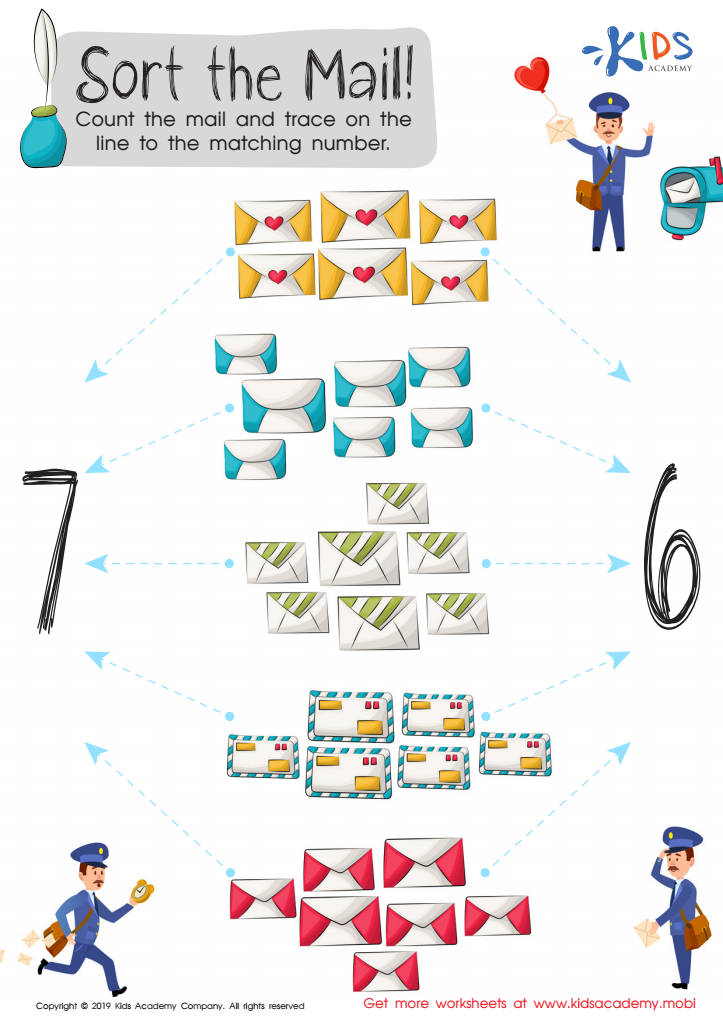

Sort the Mail Worksheet
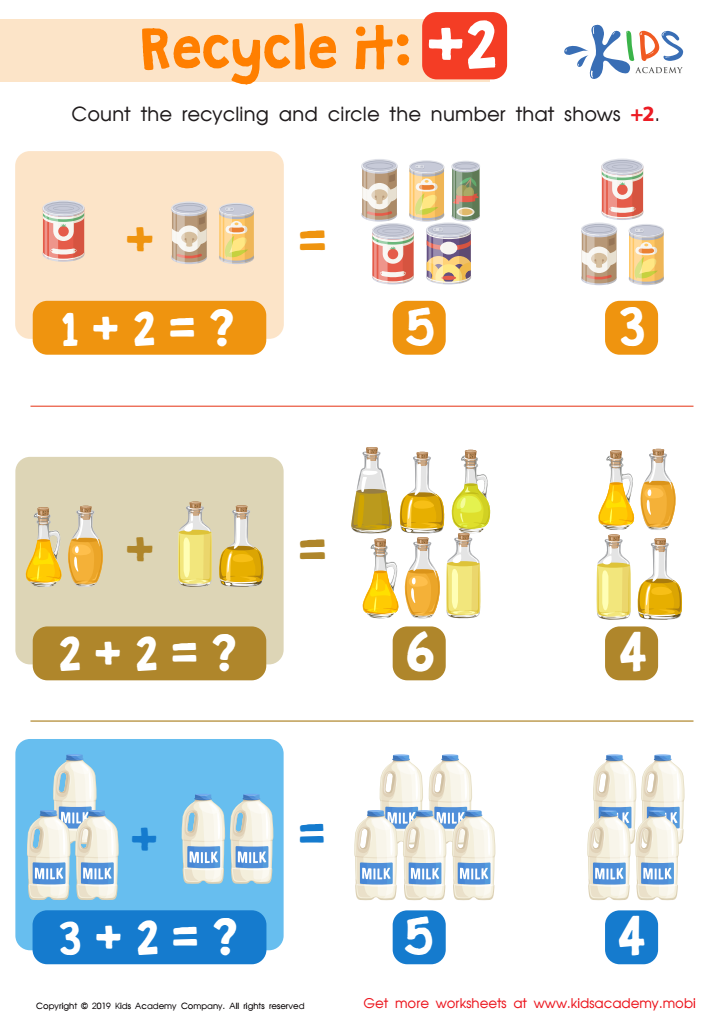

Recycle It: +2 Worksheet
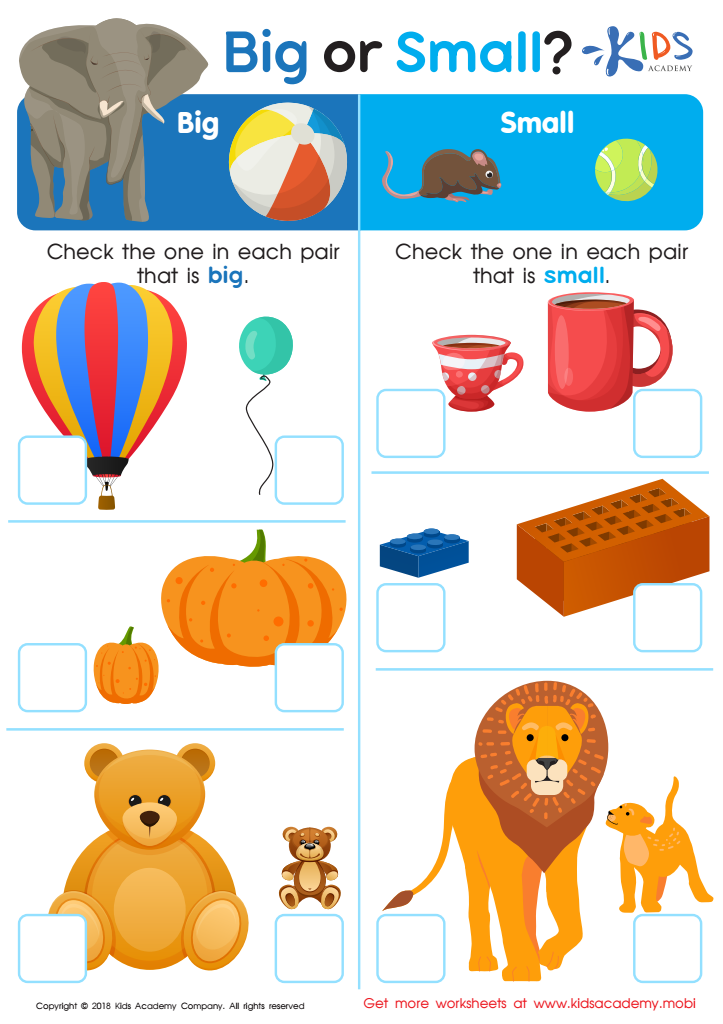

Big or Small? Worksheet
Sorting skills play a fundamental role in the cognitive development of children aged 6-7, making it essential for parents and teachers to prioritize this learning area. At this stage, children are becoming more adept at recognizing patterns and categorizing objects, which fosters critical thinking and analytical abilities. Sorting helps them understand relationships between different objects, promote problem-solving skills, and enhances their vocabulary as they learn to articulate criteria for categorization.
Moreover, sorting activities can enhance fine motor skills and encourage hand-eye coordination, as children manipulate various items. This hands-on experience can also be linked to mathematical concepts, such as counting, grouping, and recognizing quantities, laying the groundwork for later mathematical understanding.
Furthermore, engaging in sorting activities promotes social skills, as children often collaborate or take turns during group sorting tasks. Such interactions can boost communication abilities and teach them to respect others’ ideas.
Incorporating sorting into everyday lessons and activities not only fosters cognitive and motor development but also nurtures emotional and social growth, creating well-rounded learners. As parents and teachers cultivate these skills, they empower children to become thoughtful, organized individuals equipped to navigate various challenges in their educational journey and beyond.
 Assign to My Students
Assign to My Students



